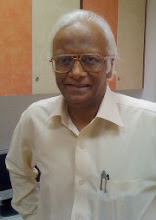
What would you call a man who mesmerizes billions by his rhetoric? Call him Barack Obama, because there are very few on the world stage who could do that. The same Barack Obama has taken the world by surprise by winning the Nobel Peace Prize. The pertinent question is whether the Nobel Prize is given for performance or hope. Hope indeed is what he has raised; performance indeed is what he has to show. Nevertheless it is the right prize for the right man, perhaps a little premature. One sees the wisdom of the Nobel Committee only when one thinks of the imponderables. Should Obama’s fate follow that of Lincoln and Kennedy’s? To be sure there is no posthumous Nobel Prize.
The world, of course, is a different place than it was when Bush left the White House. The glimpses of recuperating American economy and extending the hand of friendship to Islamic world are certainly reasons for the cheer. But is it judicious that the Nobel that slipped Gandhi, the greatest personality of the 20th century, be awarded to Obama-just because no one is worthy of it is in sight?
The world, of course, is a different place than it was when Bush left the White House. The glimpses of recuperating American economy and extending the hand of friendship to Islamic world are certainly reasons for the cheer. But is it judicious that the Nobel that slipped Gandhi, the greatest personality of the 20th century, be awarded to Obama-just because no one is worthy of it is in sight?


















